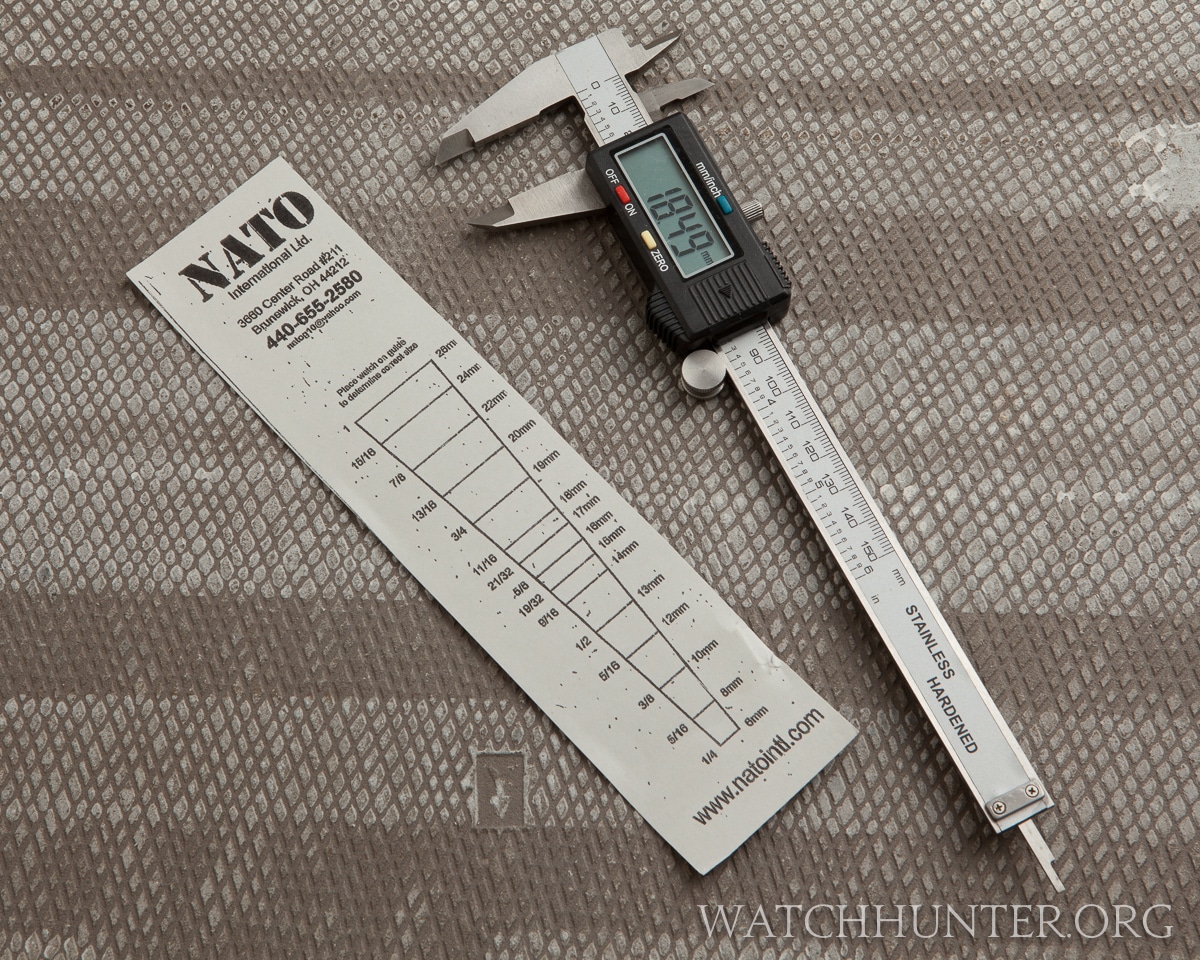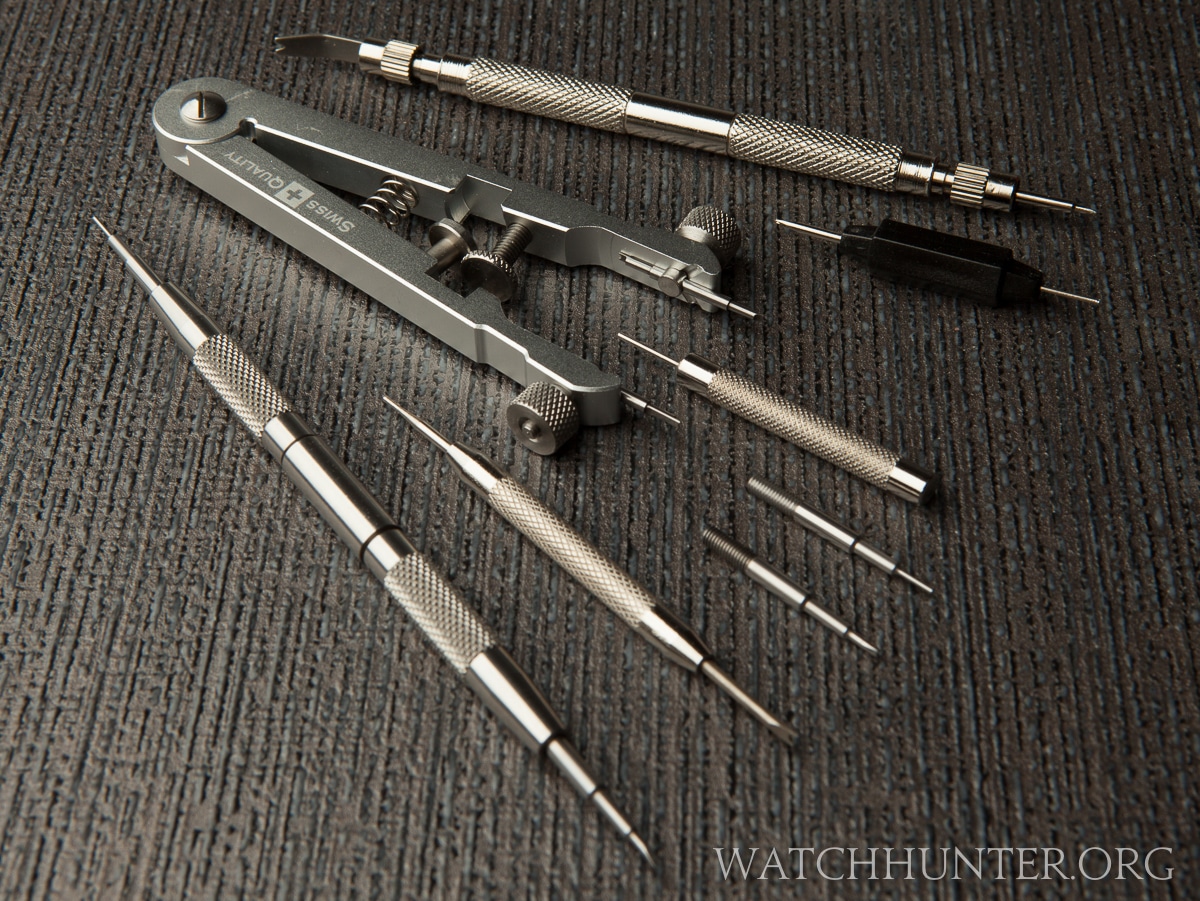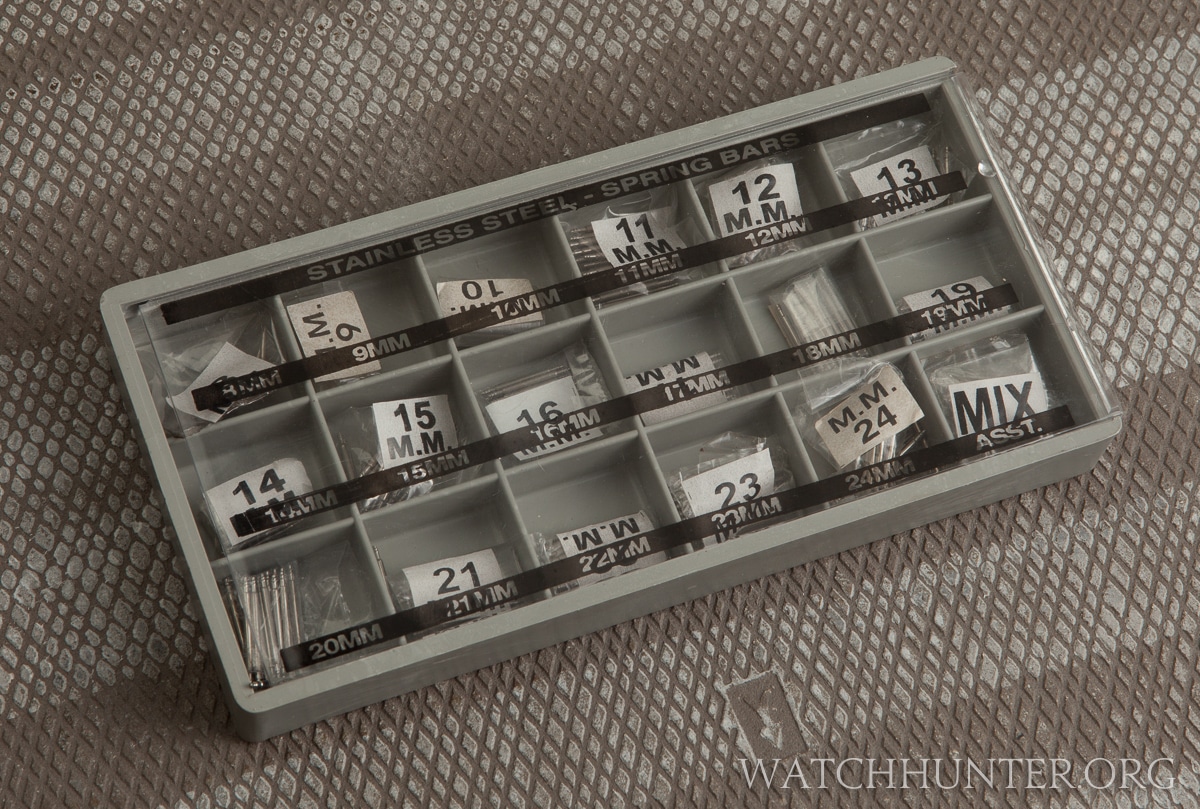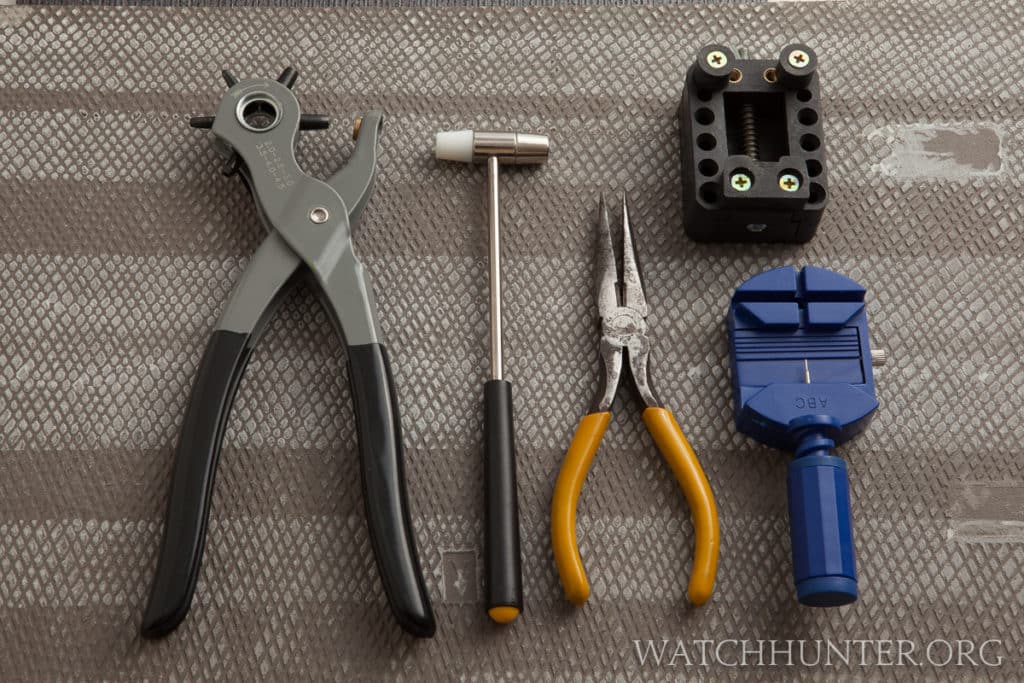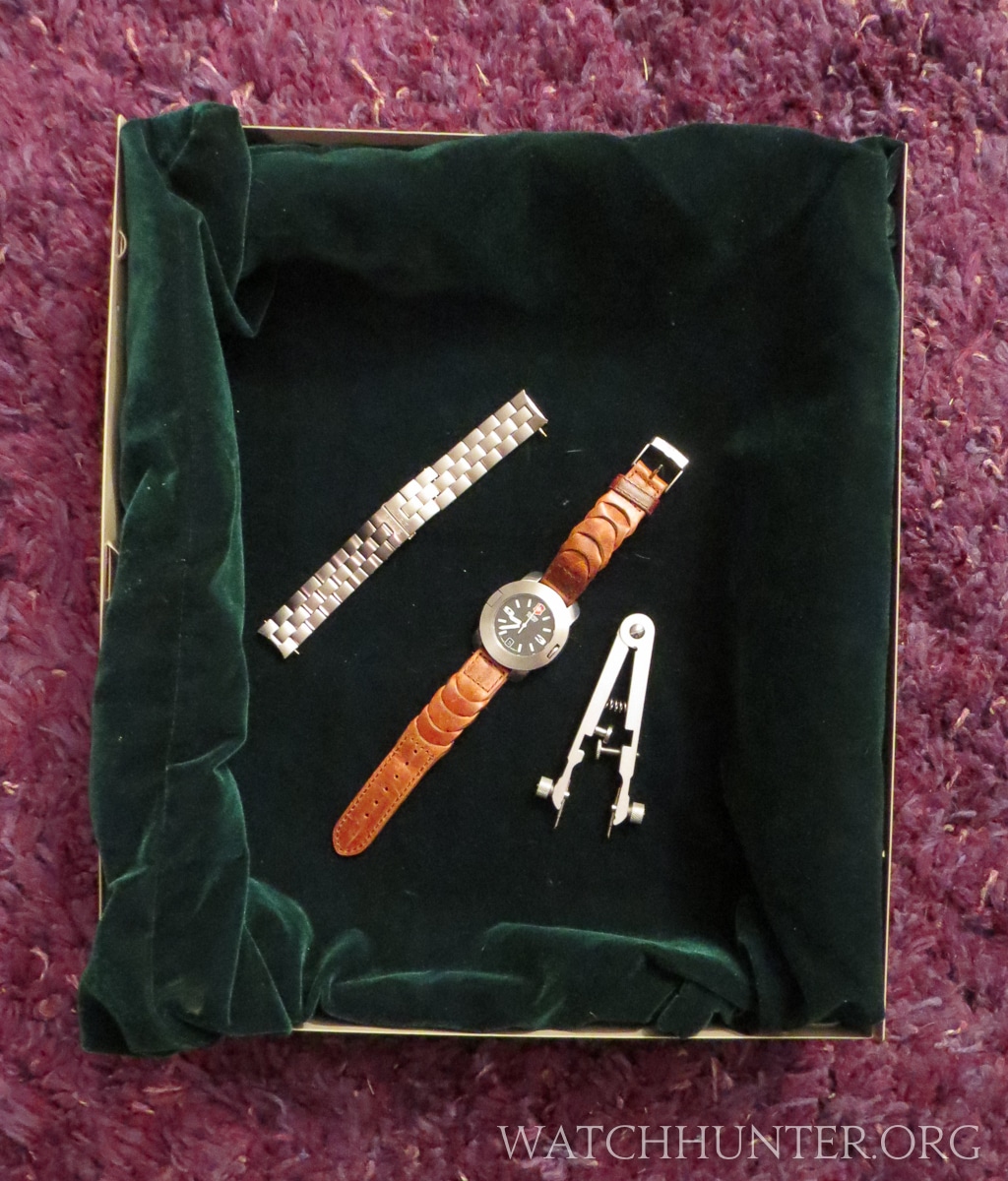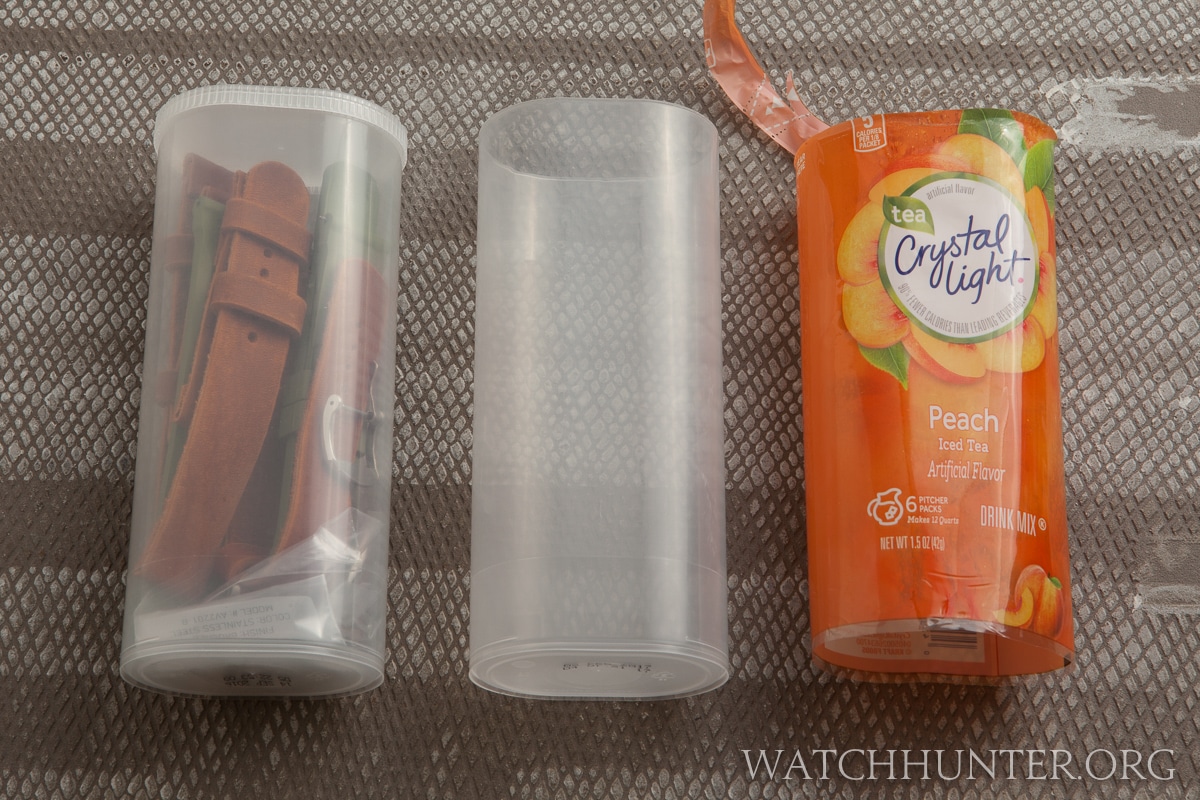Having the right tools always makes a job easier. This is especially true for the watch collector who needs specialized devices that may not be available in the average toolbox or kitchen drawer. Watches are miniaturized machines that require small, high-quality tools. Luckily, many are available online for a relatively low cost.
Below are the tools that I use to “work” on watches, specifically exchanging or resizing the wrist bands. This is by no means a complete list, but these are some of the “basics” to start with. To see the effect that changing a watch band can have the look of a watch, be sure to check out the STRAP SWAP SERIES.
Micrometer, Band Gauge or Ruler
To change a watch strap, it is helpful to be able to accurately measure it. To do this, one can either measure the width of the existing strap or the space between the lugs on a watch. The lugs are the “arms” that jut off a watch that holds the straps. Measurements are usually described in millimeters so it is advisable to have a measuring tool that works in metric units.
The best option is to use a highly accurate micrometer. This tool has a digital readout that shows the distance between its measuring blades. You can measure inner diameters such as between lugs with the small blades or outer diameters such as the width of a strap with the larger set of blades.
Spring Bar Tools
There is a wide variety of spring bar tools and believe me, some are better than others. Spring Bar tools are used to compress the springs inside of spring bar allowing you to move the band into place or remove it. The bar ends are captured in tiny drilled holes in the lugs.
Extra Spring Bars
Spring bars can break or sometimes it is easier to have extra on hand. I often store extra bands with the spring bars already inserted into the strap. It can make changing a watch band faster. I bought a variety set for almost any size one might need.
Miscellaneous Watch Band Pin Tools
Below is an assortment of the different tools you might need to change a watch band. From left to right you have a hole punch to add extra holes to leather bands, a small mallet to tap pins in or out, pliers to pull stubborn pins, a watch case holder (in black) and a link pin removal tool for metal bracelets.
A Safe Place to Work
Don’t forget to work on a non-abrasive clean surface. You can use almost anything. I use an old metal tray that I lined with velvet. The surface is safe for the watch and the sides of the tray prevent tiny little screws, pins, and links from disappearing forever. Believe me, you do not want to pay a watch maker $25 for a minuscule screw that fell into the shag carpet or couch cushions.
Sealable Containers
I up-cycled plastic Crystal Light containers. They are perfectly sized to store watch parts, similar bands, tools and even watch projects in process. You can see the contents through the plastic and you can write on them as well.
The reason that I change my own watch bands and batteries is that one time I had a low-level person at a jeweler replace a battery and the mineral crystal came back scratched like she changed the battery on a bed of sandpaper. It was not a good scene. I knew she scratched it, but she denied it. I could not raise a big stink if I ever planned to set foot in that store again and use the watchmaker who does good work. The numbskull devalued a practically brand new watch that I was about to sell. So, now I do all the work myself and I am much happier.


